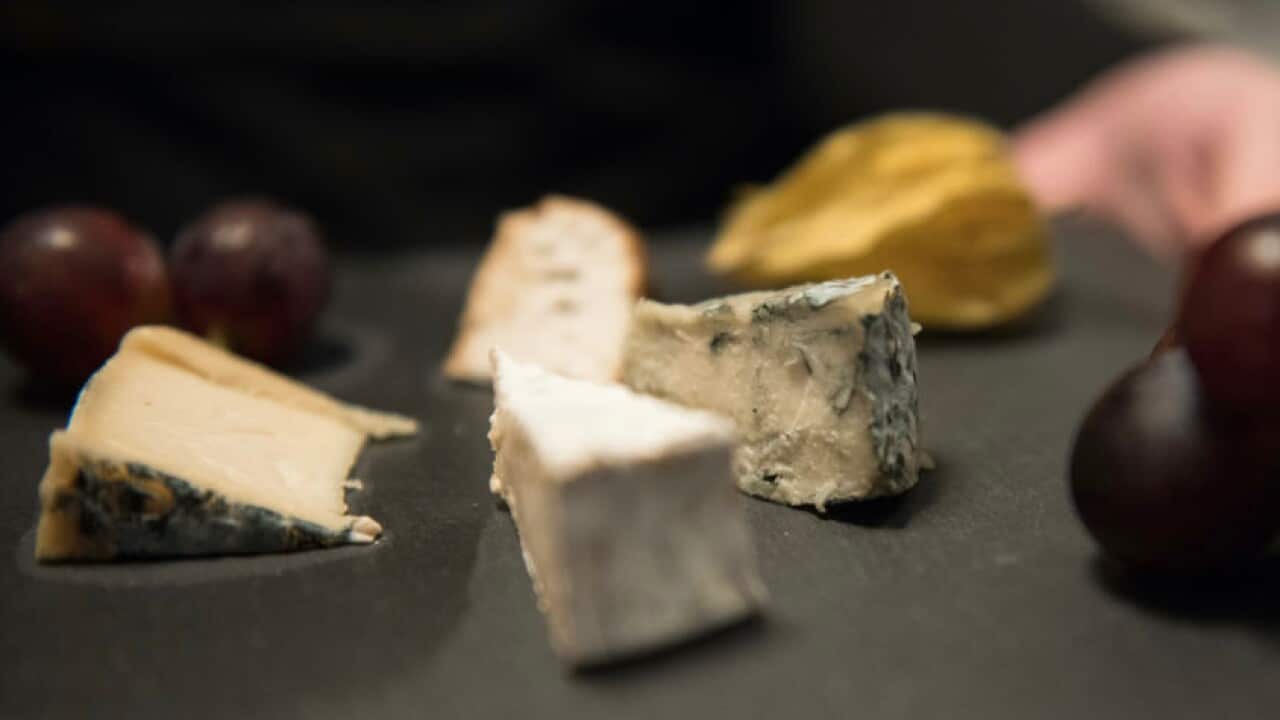Almost everyone loves a good Vegemite and cheddar sandwich or some brie with a glass of wine. But the evidence seems to shift about whether or not cheese should be part of a healthy diet.
Most types of cheese contain salt and saturated fat, but it’s also high in protein and calcium, so what’s the verdict?
We asked five experts if cheese is bad for our health.
Five out of five experts said 'No'
Here are their detailed responses:
Nutritionist
Unless you’re part of the with a cow’s milk protein or dairy product allergy, eating cheese can be consistent with good health, and a tasty way to boost your protein, calcium and vitamin B12 intake.
The Australian Guide To Healthy Eating recommends two to three serves of dairy foods per day (or four serves for women over 50 years), with a serve equivalent to about 40 grams (about the size of a matchbox) of full fat or reduced fat cheese. The reduced fat option helps reduce your .
Having moderate amounts of cheese regularly is consistent with good health.
When it comes to specific heart health risks, the question of whether to eat full fat or reduced fat has not been adequately addressed. A identified four studies that looked at cheese intake and found a as cheese intake increased. Having moderate amounts of cheese regularly is consistent with good health.
Dietician
, Program Director of Nutrition and Food Sciences, University of South Australia
Cheese contains a variety of nutritious components which need to be considered. Most of the components – calcium, protein and saturated fats – are also in other dairy products. Calcium is important for reducing the risk of osteoporosis and protein is required for synthesis and repair of tissues. These two provide clear benefits to our health. The saturated fat in cheese is more controversial in terms of its role in the development of heart disease. But the consensus from is that cheese is neutral – that is, it neither has a positive or negative effect.
Cheese is also a fermented food, containing bacteria or yeast, which contribute to healthy microbiomes.
Cheese is also a fermented food, containing bacteria or yeast, which contribute to healthy microbiomes. But remember a serve of cheese (40g) has about 500-650kj, so stick to the guidelines of consuming three serves of dairy per day and including some of these as cheese - if you like it. If you're trying to reduce weight or have existing heart disease, check with your doctor.

Not all cheese is created equal, so check packaging and try to share some of that brie. Source: Getty Images
Nutritionist
Cheese is a good food. It's an important source of beneficial nutrients for omnivores and vegetarians, such as calcium. - mostly hard cheeses, such as cheddar. Dairy products and their alternatives (such as soy-based cheese) are a core recommended food group in the Australian Dietary Guidelines, although it's advised people aged two years and over consume reduced-fat alternatives (such as reduced-fat cheddar cheese - although only 15% of cheese consumed is reduced-fat).
It's an important source of beneficial nutrients for omnivores and vegetarians, such as calcium.
This is because fat is an energy-dense nutrient and lots of us are overweight, and because a lot of the fat in cheese is the ‘bad’ saturated fat. But dairy is either neutral or beneficial to heart health - including full-fat products.
Cheese is also high in protein, which our bodies need. Some negative aspects of cheese include its higher salt content, the food poisoning risk of some varieties posed to pregnant women, and the ethical aspects involved in its production (cow and bobby calf welfare, greenhouse gas emissions and fair pay to dairy farmers).
Dietician
Cheese can be a healthy part of the diet, but not all cheeses are created equal and we don’t need to eat a whole wheel of Brie in one sitting. According to the Australian Guide to Healthy Eating, a serve is about 40g of hard cheese like cheddar and about half a cup of ricotta. Next time you’re at the supermarket look at the back of three different cheeses and see what you are actually eating, what are the ingredients? How much sodium, saturated fat and calcium does it contain? Then pick the best out of the three choices - more calcium, less sodium, less saturated fat and enjoy in moderation.
Cheese can be a healthy part of the diet, but not all cheeses are created equal and we don’t need to eat a whole wheel of Brie in one sitting.
Biomedical Scientist
Cheese is one of the most ancient foods for humans and has been part of our diet for several thousands of years. Cheese is rich in proteins and fat which provide important building blocks (amino acids and fatty acids) for our body. It also contains many other important ingredients including vitamins and minerals, all of which are needed to maintain good health.
So far, there are no studies showing cheese consumption is associated with heart disease. Although industrial trans-fat increases the risk of heart disease, the natural trans-fat contained in cheese does not. Although cheese contains saturated fat, we're not sure this is what clogs arteries. Even though cheese itself is not bad for us, we should avoid it if travelling to tuberculosis-endemic countries where pasteurization is not enforced (such as Nigeria).
Disclosures: Rebecca Reynolds owns The Real Bok Choy, a nutrition and lifestyle consultancy.
Clare Collins is affiliated with the Priority Research Centre for Physical Activity and Nutrition, the University of Newcastle, NSW. She is an NHMRC Senior Research and Gladys M Brawn Research Fellow. She has received research grants from NHMRC, ARC, Hunter Medical Research Institute, Meat and Livestock Australia, Diabetes Australia, Heart Foundation, Bill and Melinda Gates Foundation, nib foundation. She has consulted to SHINE Australia, Novo Nordisk, Quality Bakers and the Sax Institute. She was a team member conducting systematic reviews to inform the Australian Dietary Guidelines update and 2017 evidence review on dietary patterns for the Heart Foundation.
Lead image via Flickr/Canon.










